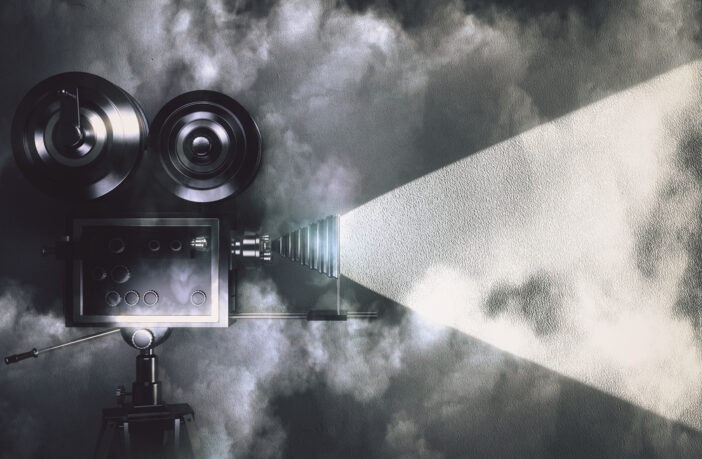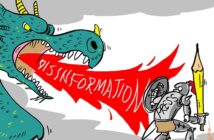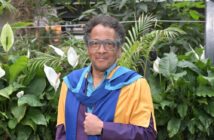From the BBC’s Planet Earth and ITV’s Seven Up! to Netflix’s The Tinder Swindler these documentaries are a well-loved and huge part of our culture and heritage that attracts audiences in their millions.
Now The Open University’s short course, A Story of Documentary Film, co-produced with the British Film Institute (BFI), takes a long look at its origins, this art form and the filmmakers behind them.
Thanks to the OU’s partnership with the BFI, students can consume a treasure trove of film archive from the late Victorian period to the present day over the six-week course.
Dr Mark Fryers, Lecturer in Film and Media at the OU, said:
“It’s designed to develop an understanding of the language of film and looks at the role documentary films played in propaganda, as a promotional tool, entertainment and as an agent for social change.”
It’s a rabbit’s warren of fascinating footage. One shows parents being interviewed about what it’s like raising a family in one room in a 1935 slum home, which was also infested with rats.
Living in unimaginable poverty, interviews with families reveal how they are pinning their hopes on new local authority social housing in the shape of flats: a home where you could actually have a bath.
A look back at the crucial role of women film makers
Look out for snippets of film from the World Wars; the forerunners of today’s natural history programmes and some of the written history of the lived experiences of successful female film-makers such as Indian-born Sarah Eruklar.
She was just one of many women filmmakers mentioned in the course. Some of her predecessors never received the same type of acclaim as men in their time.
Indeed, we learn how Sarah experienced pressure to give up her career when she married fellow film director and writer Peter de Normanville, since it was common practice for women to leave their jobs once they married.
Nevertheless, it is reported that he continued to be supportive of his wife’s career. Content on the course includes a revealing quote from Sarah herself on the issue: “That was my main problem, being a woman, more than being Indian.”
The “Golden Age of Television’
In week six the Golden Age of Television focuses on the documentaries from the 1950s to the 1980s, which included the Queen’s coronation and Seven Up!
The latter was the 1964 documentary charting the lives of a group of seven-year-old children and returns to film them every seven years. The latest was aired in 2019.
Seven Up! is labelled as one of the most celebrated documentary TV series ever made, which has spawned offshoots and imitations worldwide.
Mark added:
“This short course is essential for people wanting to know more about the language and uses of film, with fascinating examples drawn from Britain’s documentary heritage.”
To find out how to join the February 2024 course visit AXS004 | A Story of Documentary Film | Open University Course. Closing date for this sign up is 18 January. But if you miss it, there’s another one scheduled for May 2024.
Main picture: Shutterstock



